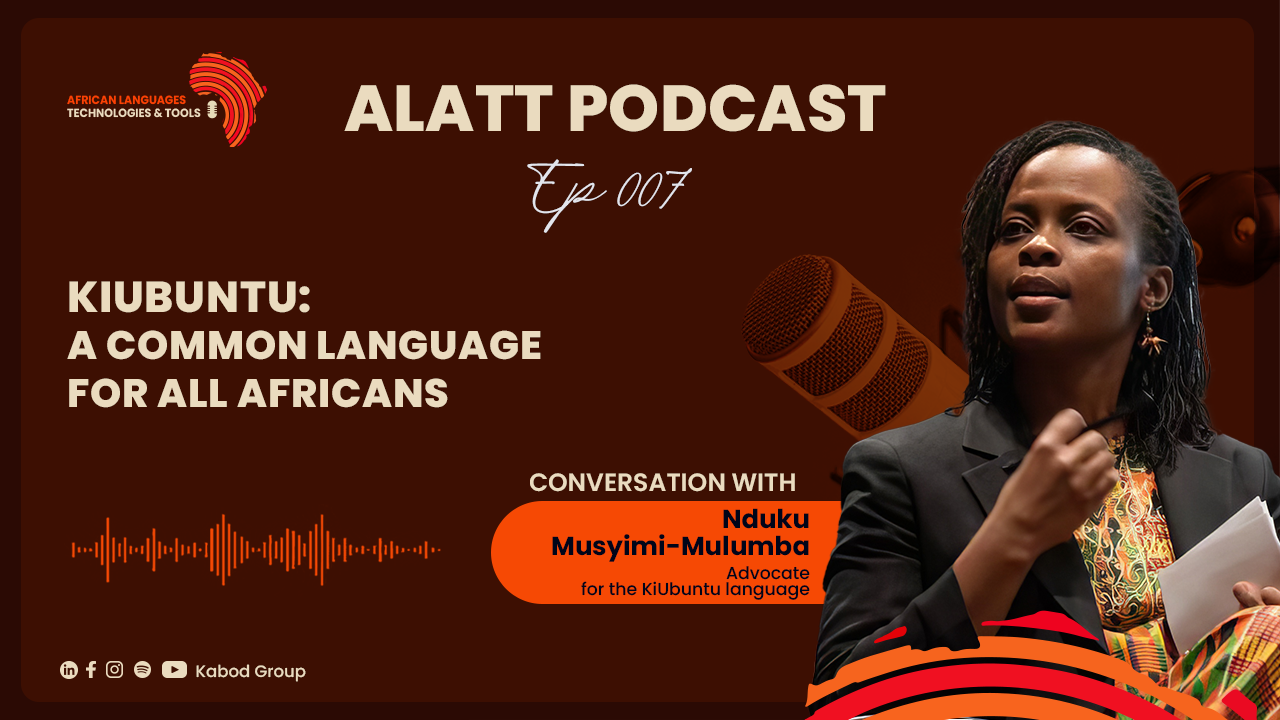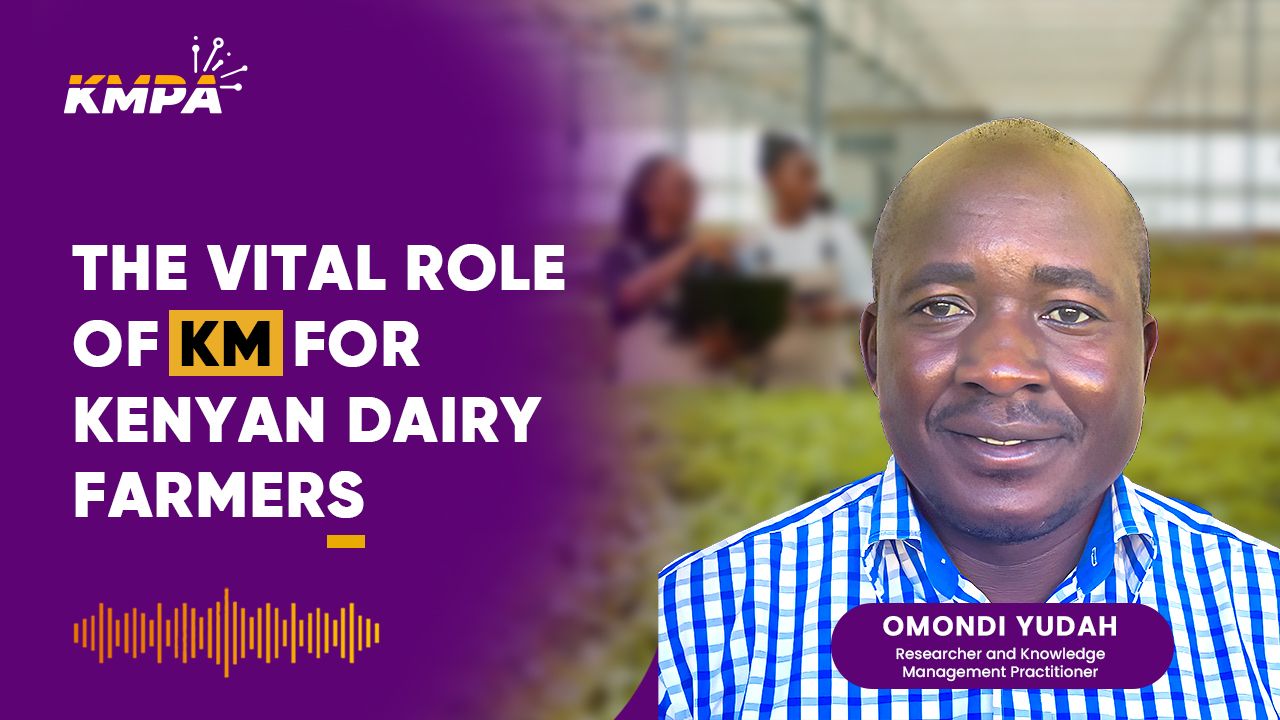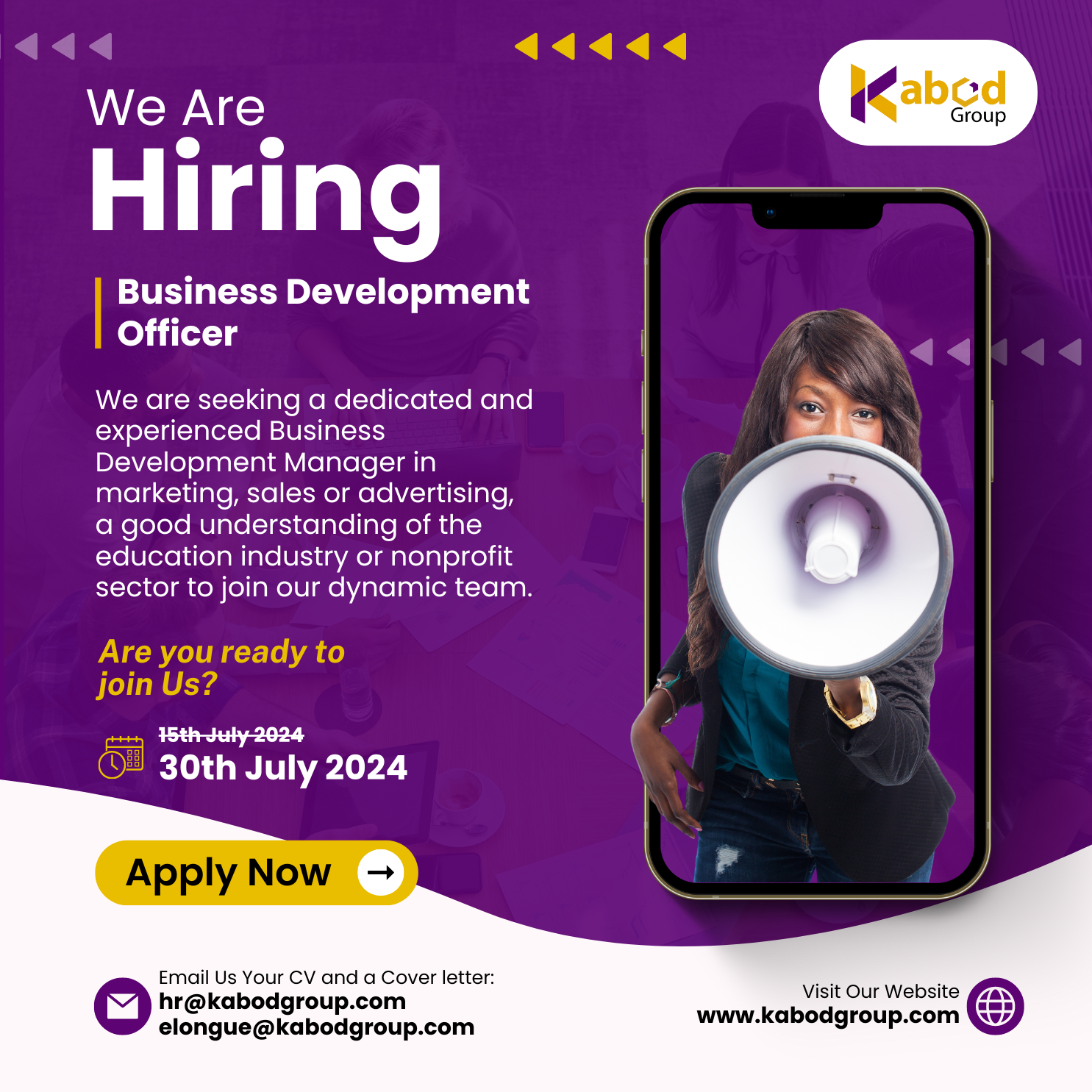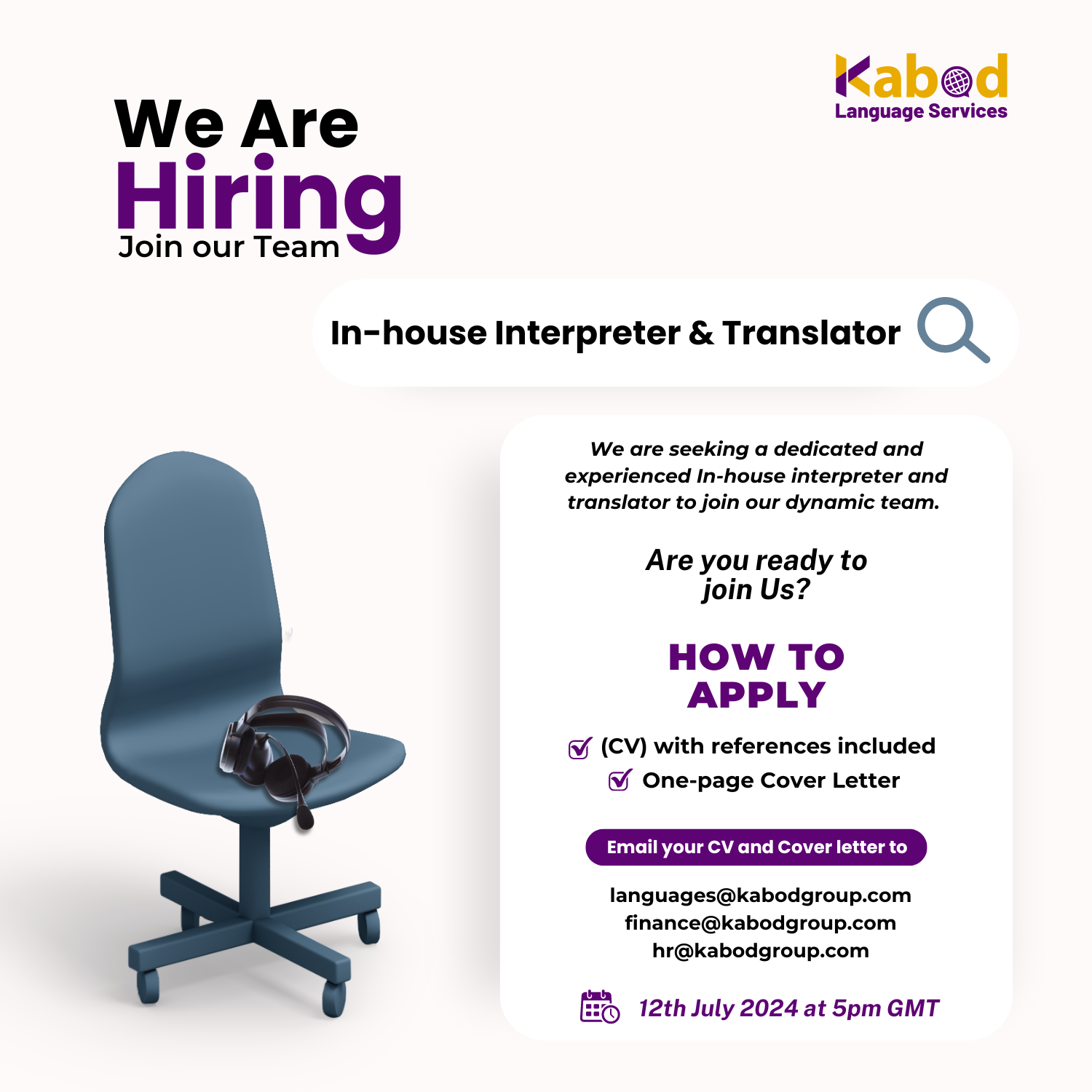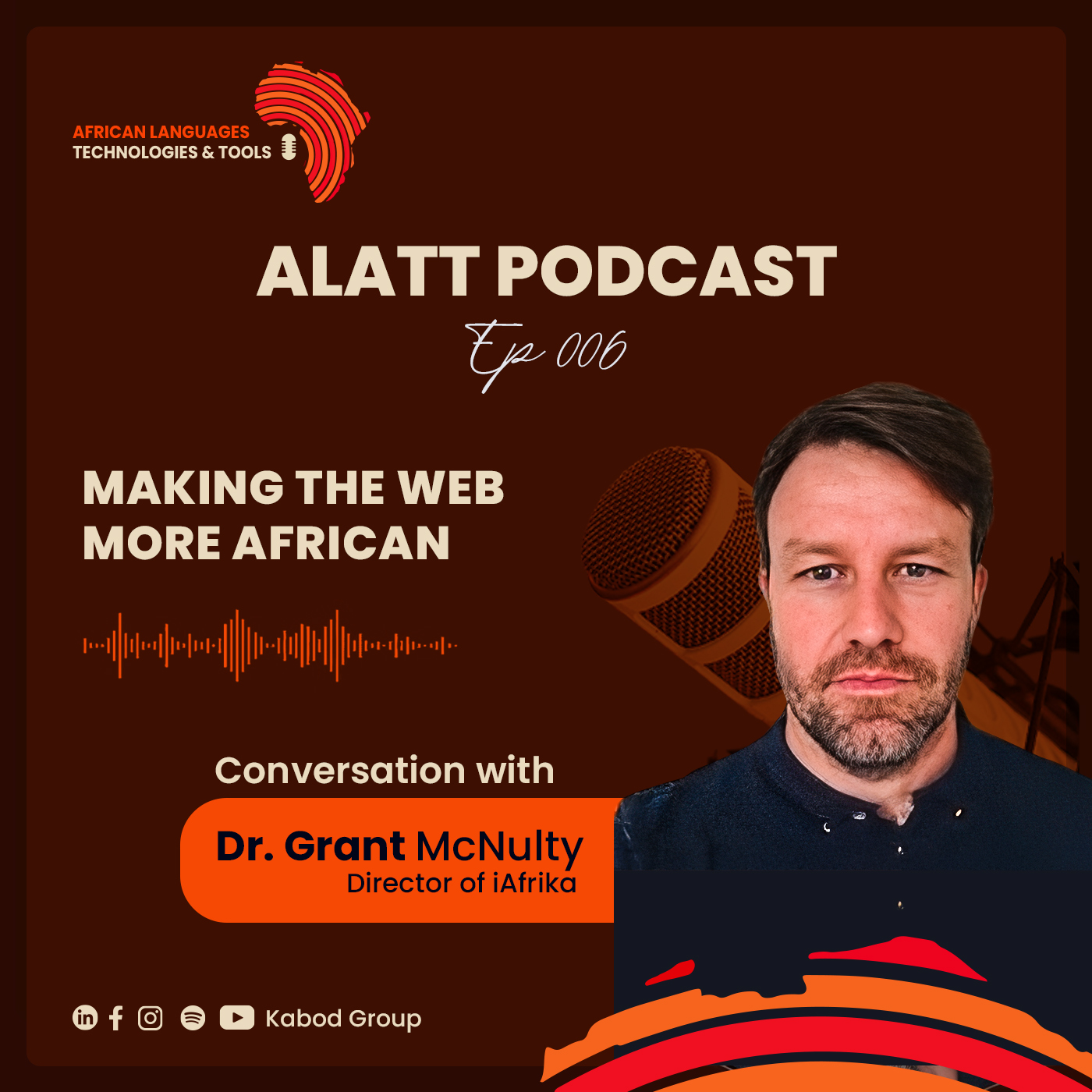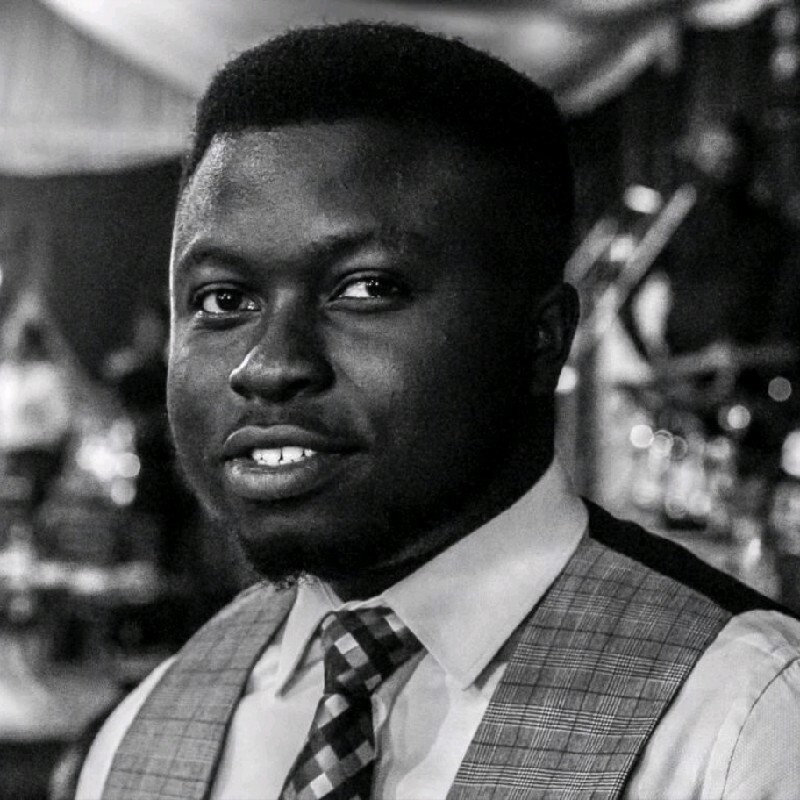
The language industry in Africa is full of untapped opportunities. Kabod has ventured on a journey of identifying, documenting, and highlighting inspiring stories and innovative projects from entrepreneurs, researchers, and freelancers in the Translation, Interpretation, and Natural Language Processing (NLP) communities. The final goal is to celebrate African professionals in the language industry and facilitate knowledge and experience sharing.
Mr. Oluwatobi J. Oladipo is the co-founder of iVoiceAfrica, he is a voice-over artist and a translator in Nigeria. His love and devotion to the development of African languages are unmatched.
Kabod: What attracts you to the language industry?
I have had the opportunity to live in different cities around the world and to interact with different people that didn’t necessarily speak the languages that I’m fluent in. When I saw that I got to a point in my life or to some places where I could not particularly communicate with the next person, I began to think of possible solutions. How about a solution where, although not a solution necessary that we all speak the same language, but a solution where you can have an understanding of what I am saying, irrespective of when we speak two different languages? And that, for me, was the one thing that attracted me to the language industry to see how humans can actually communicate irrespective of the language differences that they have.
Kabod: What does translation mean to you?
So this would also be a continuation of the last question because translation for me is beyond the text-to-text representation of what is trying to be said or what is trying to be expressed. I believe that translation also embodies mannerisms and using the right tones and the right principles of that language to communicate. Furthermore, I also believe that the reason why we do translation work as individuals or companies is because we are trying to actually speak to a certain audience or we are trying to speak to an actual person. It would only just be right if I spoke to you in a way that you would understand and that, again, is the basis of communication. I need to ensure that you understand and you can put into context what I’m saying to you.
Kabod: How did the idea of creating iVoiceAfrica come up?
On this question, iVoiceAfrica, the name is special to me because it was a name that I never thought about. It was a name that just came to me when I started my career as an independent voiceover artist. I returned back to Nigeria full-time in 2017. While I was in Nigeria, I started freelancing for broadcast agencies, I meant to say, and radio stations and ad agencies. I remember at the time I was working with a company in Barcelona, one of the requirements that they needed from me was a website of my own. I took a week off and I created a website on my own from scratch. I remember when I wanted to purchase the domain, the only name or the only thing that came to my head was iVoiceAfrica because I was already a voiceover artist. I used to do voiceovers in French and English and sometimes in Pidgin, with my unique African accent. I think why I chose that name because I wanted people to know that you are unique despite being an African and even having a distinct African accent. I wanted people to know that you’re unique and be proud to show it off to the world that this is what you do and what you’re about. That was why I believe that the name came to my head. But most significantly, I knew that I wanted to express this feeling to every African that was coming in as a voiceover artist. Even if you’re a content creator, I wanted to be able to extend this to everybody saying, irrespective of what accent you have or what language that you speak, it is special and unique. Most importantly, people need it. That became the new business model of iVoiceAfrica when I decided to transition from being just a voiceover artist.
Kabod: How did you become a co-founder?
When we started working, that is when we started creating localization work for our clients in terms of translations, voiceovers, and interpretations; we got accepted to Microsoft for startups in 2022, the first quarter of 2022. One of the requirements that we had at the time was that we needed to create a tech-enabled company. So at that time, we had one of our friends, who used to be a consultant for us on technology and business development and strategy. Hence, she joined us full-time as a co-founder and the technical co-founder and we began to develop new business models and new business cases for how we can transition to be a tech-enabled company. Although that is still a work in progress, we are very sure that sometime this year, 2023, we will be able to announce to the world what we are trying to do next as a company.
Kabod: What are some challenges you encountered during your career?
For some of the challenges that we encountered in our career, I’m going to answer this from the perspective of iVoiceAfrica, not myself as a voiceover artist, although they still go hand in hand. I think the biggest challenge that we face in localization, particularly from Africa, is that we have lots of languages. We have over 2,000 languages and 7,000 dialects in Africa. In addition to that, finding professional resources that are able to deliver quality in these languages is also very hard. We always have to go the extra mile, do the extra marketing, and do the extra sales. The fact that I speak multiple African languages also helps. For instance, when I’m speaking to people in places or countries like Congo, Guinea Bissau, and so on, I communicate effectively with them. In some regards, that could also be a challenge because I’ve had to speak diverse kinds of languages, in ways that people can understand. For example, in Angola or Mozambique, where they mostly speak Portuguese; when you’re trying to express yourself or explain what you’re trying to achieve from a project, sometimes it’s difficult to pass your message across.
Kabod: Can you share some success stories of projects involving your company?
I already mentioned our acceptance into Microsoft for startups in 2022. I think that was one of the major milestones we experienced as a company. We have had some significant partnerships with multinationals and multinational organizations. Some of them, we have a non-disclosure agreement on some, and some others we are able to talk about. At the same time, we have also contributed to a couple of CSR projects for some of our partners, the likes of Translators Without Borders. It just feels good to be able to contribute to the localization efforts of these humanitarian organizations for Africans in the diaspora or even perhaps in their home countries.
Kabod: How do you market yourselves and our services and LSP?
In the industry that we are in, there is no one size fits all. The most important thing that we got to learn as a company is once we had our set goals and objectives, what we wanted to achieve first of all, as a company, then we were able to create KPIs for all the departments that exist, from the project to the marketing, to the sales and communications et cetera. As soon as we had that strategy of what we were looking for, then we began to approach it in a way that would fail to help us drive our bottom line, and that’s what I think we did right. So if you’re an LSP, or you are also thinking of launching a language service company, your goal needs to be aligned properly first of all, and then that way you can now know what point you’re trying to touch or how you’re going to sell yourself or market yourself, as the case may be.
Kabod: How did you get your first contract?
Our first contract, I think the first contract really ties back to me being a voiceover artist. As I mentioned, I started off as a voiceover artist, independently, but I knew that I had a goal in mind at the end of the day. And it was during the pandemic that the realization of this goal started. iVoiceAfrica became what it is today during the Pandemic and that’s because, if you remember then a lot of people, particularly in Africa, did not understand what COVID-19 was or what COVID-19 meant. I was already a freelancer on some freelance websites as a voiceover artist, and I used to do a couple of translation works in French and Yoruba sometimes when I had the time. I remember someone had reached out to me and said, “Oh, we want you to do this voiceover for us in Pidgin. If you’re also able to provide the service in Yoruba (which was Ijebu at the time), we would be glad if you could help us do that”. I would see that as our first client because that was the first time that I had to handle a project in that I was not the main voice. I was not the voiceover artist. It made me now start looking for Ijebu voiceover artists. It was an eye-opener for me because I was living in Lagos at the time and Ijebu is spoken in Ogun State, Nigeria. So I was asking myself questions, would I need to travel to Ogun State to run this project? Can I do it from Lagos? Even if I’m going to do it from Lagos, how would I be able to do it? And I think that really taught me so much about how you could actually create value from one location. And that’s what we do as a company in iVoiceAfrica, as we are incorporated in Nigeria. But we’ve been able to touch over 24 countries, or more than 30 countries actually, in Africa, and we have our client base abroad.
Kabod: What strategies did you use to increase your pool of clients while maintaining the existing ones?
So I think the first project that we did, gave us more opening to having more clients. Then, we started creating new pitch decks and we were sending them over to corporations, institutions, and organizations. We did our market analysis and the proper market research to see who could be needing these services. Africa is a special continent. The value that we have is so huge. We had to start asking ourselves these questions; how can we market Africa to the world? So that’s how we started looking for more clients. Then some we got, some we didn’t get, and in keeping the ones that existed, we started creating new services that could keep them interested. We were like “Oh we know we’ve done the voice of service for you in the past, but I want you to know that we can do the translation. I want you to know that if you’re having an event or if you’re having a corporation if you’re having a webinar or whatever the case may be; we could also provide interpretation services for you”. Hence, that’s how we were able to keep our client base and also get more clients.
Kabod: How can African translators position themselves to better tap opportunities in the global language industry?
I think the first thing is you need to develop yourself irrespective of whatever quadrant that you fall in. So the most important thing is building quality and distinguishing yourself in whatever field that you play. And once you have that, it is very easy to now start connecting yourself with the LSPs, now we have lots of LSPs coming out of Africa. I have realized as well from the industry that translators, with all the LSPs that exist particularly in Africa, work mostly with the same translators all the time. Also the fact that we all have different strategies and different models, it just makes sense that you are connecting with us as much as possible because the reality is we are also trying to increase our resource pool. So the more we are able to find you or the more you’re able to reach out to us, it is a win-win situation for both of us at the end of the day.
Kabod: How do you leverage technology to facilitate your work? Do you use computer-assisted translation tools? Which do you prefer? Why?
So we use CAT tools to improve our work, particularly from a quality assurance point of view. In the past. We have used Memsource and Trados. Those are the tools that we use often now that we are talking about translation. When it comes to Voicing, we use quite a number of tools. We have used GarageBand, Audacity, Audition, Reaper, and so on. There’s quite a number that we have had to use depending on the volume of work that we have had to do. I would not say I have a preference for any one of them in particular because I believe that they all have what makes them stand out as either translation tools or say, audio production software. All I would say is that it is just about which one does the right job at that moment.
Kabod: Do you think there is a viable market for African language LSPs?
I think there is actually a viable market for African language LSPs. What we need to do is we need to actually create more use cases for ourselves because I know that as much as the majority of African countries were colonized either by the French or the British or the Portuguese, we have distinct languages that make us special and unique every time we are in the continent and even in diaspora. We need to develop more use cases for our languages, particularly because I know that historically or in the past, most of these African nations would restrict the use of our local languages in classrooms or formal education, or in formal settings. So, that was where I would say the use of our languages started lacking or started missing at some point. But the fact that things are changing, and people are accepting Africa for what it is right now. So now is the time to actually put ourselves out there. Show people more of our culture, and our language. Once we are able to get to that point where we now start creating more business cases or use cases for the African languages that we have, then I think then there could be a unique future for us.
Kabod: What are the three top pieces of advice that you will share with a budding LSP from Africa per your experiences?
The first piece of advice that I would say does not to relent, do not give up. I think it is also not easy to market. I’m not going to say that it is very easy to market yourself as an African language LSP, because you want to be sure that there is also demand for the service that we offer. So I would say do not give up because there are actually people out there, there are companies, corporations, and agencies that are actually in need of the services every now and then. This takes me to my next piece of advice, which is to be as innovative as possible. One of the things that we were able to get right as a company at iVoiceAfrica when we started is we always set goals and milestones of where we want to be for a certain duration. And it is also important that you don’t put yourself restricted or restrictive to a certain point by saying, “Oh, we are only just going to be a translation company”. But it is much better to ask open-ended questions like, “What more can you do? What more services can you offer? How can you make yourself scalable? Can you take this to the next level where you’re able to create more solutions or build more layers above the solutions that currently exist?” So this is the advice that I will give. Most importantly, I will say market yourself as much as possible. And I already spoke about marketing in the previous questions, so I hope that would also be able to help as well.
Kabod: How do you envision the future of LSPs in African languages?
One of the things that I see for the future of LSPs in African languages is that there will be more collaboration amongst African language LSPs. It doesn’t really exist as much at the moment; one of the reasons for that is that African language LSPs, we are just literally coming out. I would say there were just a few LSPs that existed from Africa a couple of years ago, and now we are seeing more coming out of Nigeria, Ghana, and Kenya, from literally every part of Africa. So we are all coming out now, we are all marketing ourselves, we are all creating new strategies for ourselves and I think in the future we will be able to see more collaborations. I also do think that there will be some technological innovations for African languages that are more accurate and more precise and that would also increase more conversations and more awareness to the world at large of what we can do as African language LSPs which would also increase collaborations as well. I see that happening in the future. I see more people joining the localization industry. You know how back in the day, when you asked yourself, “What do I want to be when I grow up? where do I want to be in the future?” We all think about engineering or the sciences or accounting, but I think people would begin to see that there could actually be a full-time career in localization and being an African. I want people to be able to see that, “Oh, I speak this language as an African, or I should be speaking this language as an African, and I can actually create a career out of speaking this language”. And I think those are the things that we will begin to see in the near future. Thank you.
Thanks, M. Oluwatobi J. Oladipo, for your time and for sharing your experiences with us.
Are you also in the language industry in Africa? Would you also like to be featured in our Knowledge Exchange Series, which highlights the journey and experiences of African language translators, interpreters, and computational linguists, etc.,? Then, reach out to languages@kabodgroup.com to express interest.


